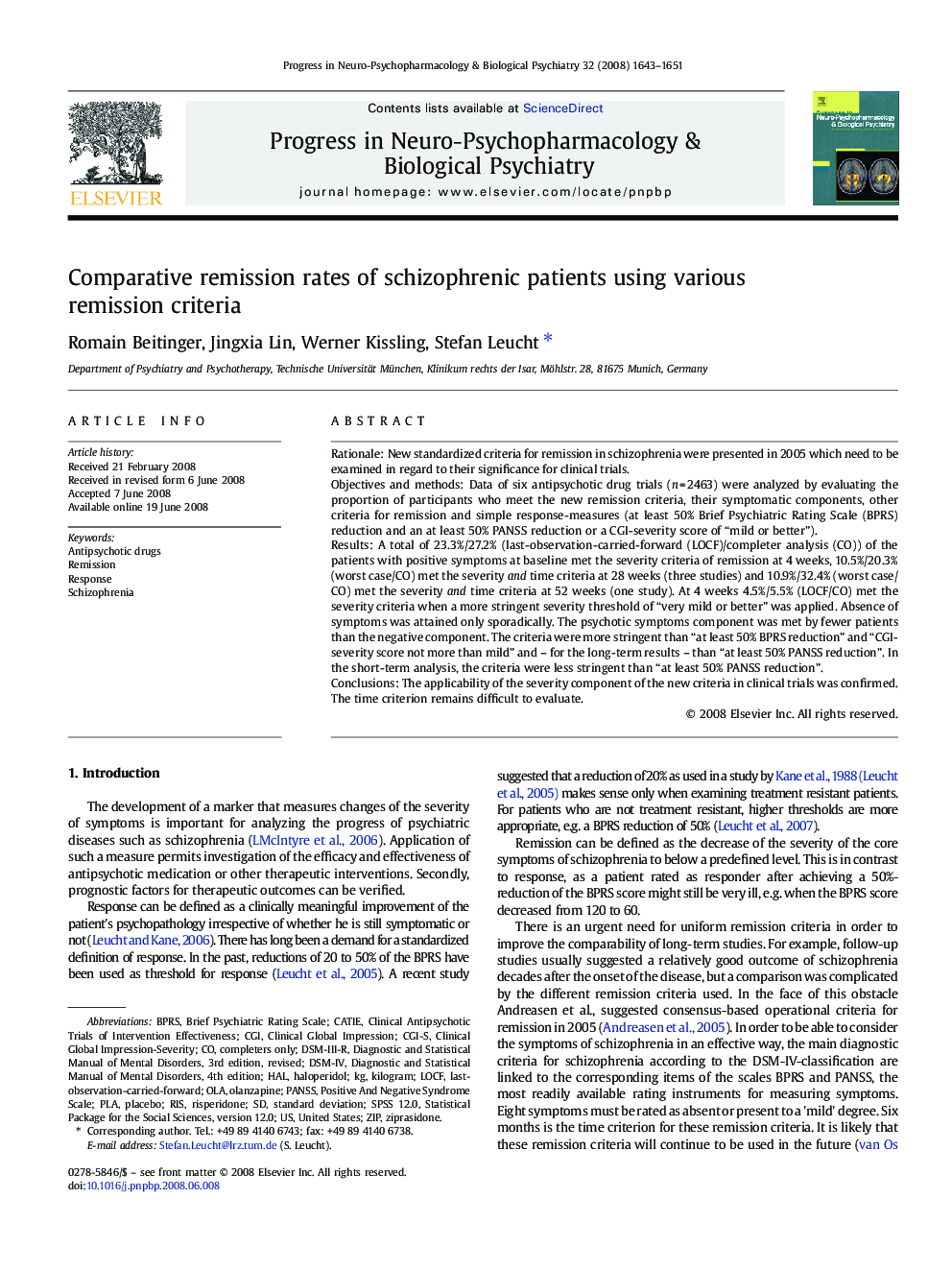| Article ID | Journal | Published Year | Pages | File Type |
|---|---|---|---|---|
| 2565528 | Progress in Neuro-Psychopharmacology and Biological Psychiatry | 2008 | 9 Pages |
RationaleNew standardized criteria for remission in schizophrenia were presented in 2005 which need to be examined in regard to their significance for clinical trials.Objectives and methodsData of six antipsychotic drug trials (n = 2463) were analyzed by evaluating the proportion of participants who meet the new remission criteria, their symptomatic components, other criteria for remission and simple response-measures (at least 50% Brief Psychiatric Rating Scale (BPRS) reduction and an at least 50% PANSS reduction or a CGI-severity score of “mild or better”).Results: A total of 23.3%/27.2% (last-observation-carried-forward (LOCF)/completer analysis (CO)) of the patients with positive symptoms at baseline met the severity criteria of remission at 4 weeks, 10.5%/20.3% (worst case/CO) met the severity and time criteria at 28 weeks (three studies) and 10.9%/32.4% (worst case/CO) met the severity and time criteria at 52 weeks (one study). At 4 weeks 4.5%/5.5% (LOCF/CO) met the severity criteria when a more stringent severity threshold of “very mild or better” was applied. Absence of symptoms was attained only sporadically. The psychotic symptoms component was met by fewer patients than the negative component. The criteria were more stringent than “at least 50% BPRS reduction” and “CGI-severity score not more than mild” and – for the long-term results – than “at least 50% PANSS reduction”. In the short-term analysis, the criteria were less stringent than “at least 50% PANSS reduction”.ConclusionsThe applicability of the severity component of the new criteria in clinical trials was confirmed. The time criterion remains difficult to evaluate.
